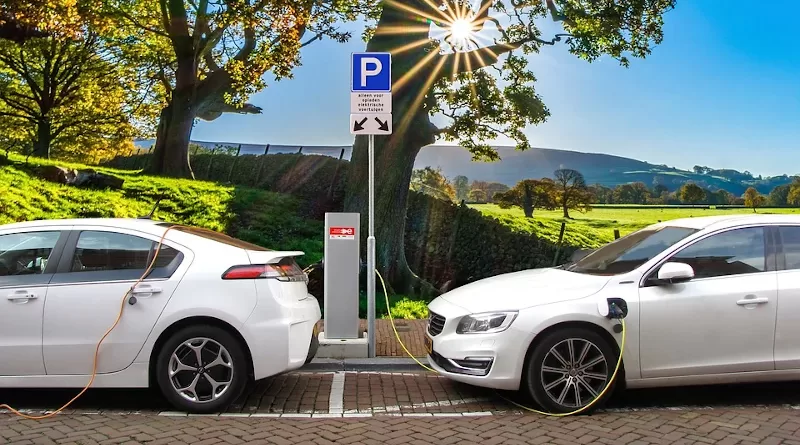Time To Speed Up The Electric Vehicle Revolution – Analysis
Electric vehicles, known as EVs, are the next revolution in energy after oil. EVs bring with them batteries, themselves part of this next step. EVs are, of course, already here, but not on a mass scale. The technological leap from oil to EVs and batteries is proving difficult as a whole new industry gets “wired” for this new and necessary energy evolution, through widespread adoptions by governments and industry in order to save Earth’s climate. These are high stakes.
Going from oil to EVs is very similar to the evolution in military affairs theory. Mechanics and electronics often go through revolutionary processes, whereby a new technology replaces an old one, but these take time. However, with climate change, there is no luxury of time. EVs fit into this revolutionary trend line as a necessary change measured not in decades, but instead in minutes. Previous revolutions in energy affairs have never had a ticking clock counting down to a number of global changes, in terms of both weather and the seas.
To be sure, the mass adoption of EVs is anticipated in the years ahead. However, this mass adoption is predicated on the availability and affordability of the raw materials required to facilitate this revolutionary transformation. The implications of EV and battery material shortages are currently not well understood within the broader context of the raw materials industries that feed this revolution. Many discuss materials and logistics and start to weave new throughputs for the EV and battery supply chains, but the essence of time remains unfactored into the policy and management model. People must move faster.
Research shows that, without major changes in certain technologies, the supply chains for cobalt and lithium, which generate the energy revolution, could seriously constrain the widespread development and deployment of EVs. Significant demand increases are also predicted for copper, chrome and aluminum.
How EVs’ extraction and logistic methods offer economic growth is part of the evolutionary equation. The emergence of an EV mass market offers considerable development opportunities for countries that have abundant resources of aluminum, cobalt, copper, lithium, manganese and nickel. However, because of the complexity, opacity and volatility in these industries, ambitious plans to expand developing countries’ domestic EV raw material sectors are not being carried out in a timely fashion. Delays over policy debate on political implications cost precious moments. It is important that the implications of the growing demand for the critical materials needed by the EV global value chain are carefully understood.
When discussing supplies for the EV revolution, seabed mining also is part of the picture. It may be costly, but it is necessary. Deep-sea mining is sometimes framed as a green way to extract the minerals required for the EV revolution. Legalities are omnipresent in an effort to protect the environment as much as possible. The legal framing of deep-sea mining through the UN Convention on the Law of the Sea and the International Seabed Authority helps to shape any EV mining activity, whether planned or already active.
Different parts of the world are affected by the EV revolution in different ways. For example, Europe cannot afford to lose the race for certain advanced technologies that will be crucial in the 21st century. Whereas Europe is still doing relatively well in terms of its presence among the largest green tech companies, it is clear that, as China and India move up the supply chain, European firms will face increasing competition. The US clearly dominates the market for self-driving cars and information and communication technologies more broadly, just as China does in the market for EV batteries and Taiwan does for semiconductors. This means that Washington and Beijing need to get along in order for the world to have a successful EV revolution.
Meanwhile, climate change continues to inflict damage and the reports are becoming clearer that serious action needs to be taken now. While the levels of some bodies of water will rise, others will fall, affecting ports where EV materials enter and exit. As this energy transformation occurs, the climate aspect in terms of impact on industry needs to be considered, especially if there is a sudden, urgent demand to quicken production pace.
Warfare and the resulting sanctions are also affecting the EV revolution. Conflicts and confrontations will affect the pace and scope of this necessary revolution. The key questions are: Will EV production speed up or slow down as an overall trend line? Will warfare interrupt key and necessary transformation processes?
Overall, the prospect of electrifying the global passenger vehicle fleet represents a huge development opportunity for the mineral-abundant regions of the world. Countries endowed with the raw materials needed to drive the EV revolution face both opportunities and challenges. When one thinks of the trickle down from the EV revolution, consider the wholesale changes in auto manufacturing, auto dealerships, oil and energy companies, battery manufacturers, tech companies and insurance firms. Everybody is affected, thereby making the situation both evolutionary and revolutionary.

